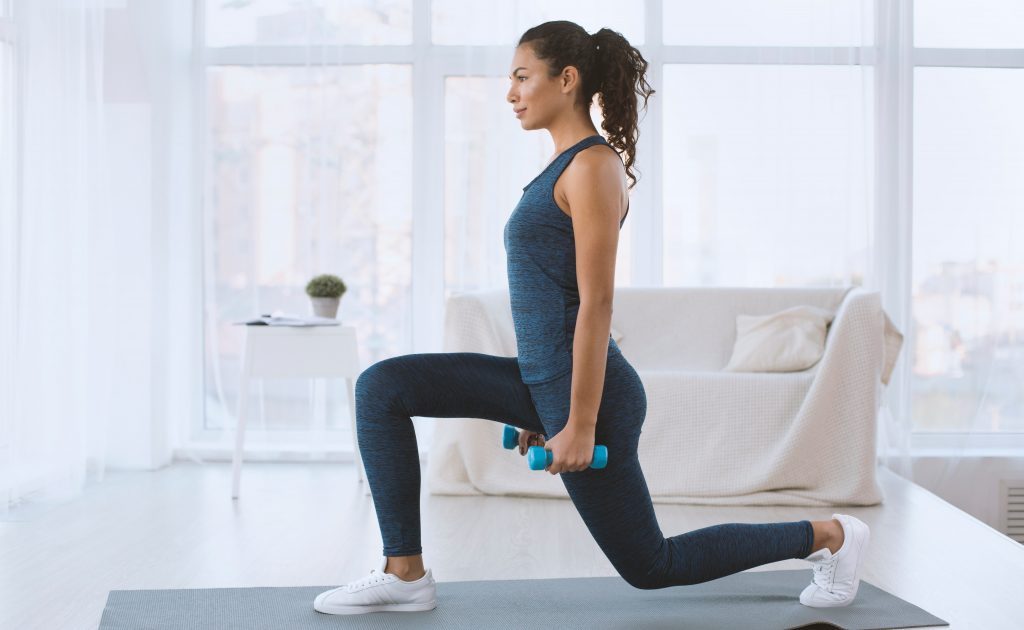
Exercise can be a haunting word and a daunting task for many. This combined with the many myths related to exercise rampant in our society makes exercising all the more of a chore than a pleasant activity. The majority of us even today believe that exercise and workouts should be restricted to those who are overweight or obese. Our Indian education system to this day gives priority to academic intellect so much so that the physical and mental health of students takes a back seat. We are caught in the rat race of mugging facts and scoring grades.
We become excellent doctors, engineers, academicians, etc. We may even earn a fortune from our professions. But, have you ever wondered, what good is all this life and money without health? Heard about the age-old saying “Health is Wealth”?
Let us today explore this saying further and understand how regular exercise can not only fetch you wealth but also provide you with benefits immeasurable.
Introduction
When we talk about exercise, we often come across the term physical activity. Physical activity is defined as any bodily movement produced by skeletal muscles that requires energy expenditure. One should know that the term “Physical activity” is not equal to “exercise”. Exercise is a subcategory of physical activity that is structured, repetitive, and purposeful.
“A sound body has a sound mind” means that if a person is weak, dull, and sick, he is not able to do his work efficiently and quickly. Having a fresh mind before any work, like office work, studying, or even some creative work, is very important. The people who make exercise an essential part of their routine are happier and more efficient than others. Exercise does not necessarily mean going to the gym or some club for daily activity; it only means doing some physical activity no matter how and where. (1)
The period of adolescence represents the transition from childhood to adulthood and lifetime habits such as regular exercise normally begin and must be inculcated at this time. Unfortunately, research indicates that physical activity rates decline consistently during the adolescent years (2,3). The present era in which we all live is full of health hazards, because of pollution, rapid industrialization, mechanization, etc.
The lifestyle of people has changed to a sedentary one. Physical activity in daily life is limited to switching on and off the remote controls of every instrument and electronic device, for example, the operation of television, mobiles, computers, etc. This leads to various problems related to health, because of less manual or physical labor in daily activities.
Given such a scenario one should make sure that you incorporate a regular exercise regime into your lifestyle. No matter what age or gender you are you will benefit from your daily exercise routine. let us dive in deeper and see how exactly will exercise help your mind and body.
10 Benefits of Regular Exercise
1. Controls weight
Overweight and obesity are significant health problems all over the world for all ages. Genetics can play a role in the possibility that a person will become obese. The condition
occurs when the amount of calories consumed by a person exceeds the amount of calories expended over a long time. The more you exercise, the easier it becomes to keep your weight under control. Excess calories are stored as fat in the body, and with long-term caloric excess, an individual eventually becomes obese.
Exercise can help prevent this excess weight gain. It will also help maintain weight loss. When you engage in physical activity, you burn excess calories, and the more intense the exercise, the more calories you burn.
2. Reduces risk of lifestyle diseases
Obesity and overweight are associated with increased risk for lifestyle-related diseases like hypertension, osteoarthritis, abnormal cholesterol and triglyceride levels, type 2 diabetes, coronary heart disease, PCOD/PCOS, etc.
Regular exercise can go a long way in controlling the risk factors of these diseases. The heart is made of cardiac muscles and needs exercise to stay in shape. When it’s exercised, the heart can pump more blood through the body and continue working at optimal efficiency with little strain. This will likely help it to stay healthy longer. According to the American Heart Association (AHA), exercising 30 minutes a day, five days a week will improve your heart health and help reduce your risk of heart disease (1).
3. Promotes sleep
The stress you undergo in your daily life may unknowingly hamper your sleep cycle. It is advised that one must sleep at least 7 to 8 hours daily to refresh and rejuvenate oneself. This will help in the overall better functioning of the body. So, are you someone who is struggling with your way to sleep? Then this might just be the answer for you. In general, regular exercise will make you more tired so that you are better ready to sleep. Good quality sleep can help improve your overall wellness and even reduce stress.
4. Elevates your mood
Exercise releases endorphins, which create feelings of happiness and euphoria. Higher energy levels resulting from exercise help a person remain fresh and happy. Following a suitable exercise program can add some fun and brightness to the day. Working out for just 30 minutes a few times a week can instantly boost the overall mood. Physical fitness can also boost self-esteem and improve positive self-image. Regardless of weight, size, gender, or age, exercise can quickly elevate a person’s perception of his or her attractiveness, that is, self-worth (1).
5. Mental health benefits
Stress relief is one of the most common mental benefits of exercise. Regular exercise can help to manage physical and mental stress. Exercise also increases concentrations of norepinephrine, a chemical that can moderate the brain’s response to stress. Being active greatly causes a reduction in stress levels. Studies have shown that exercise can even improve symptoms among the clinically depressed. The endorphins released during and after any physical exercise can even help people with anxiety disorders calm down.
6. Benefits the older population
As you grow older your muscle mass decreases. This is called sarcopenia and it is true in the case of either of the genders. As age increases due to hormonal changes in the body, the bone density of women especially in the post-menopausal phase also reduces.
Exercise involves a series of sustained muscle contractions, of either long or short duration, depending on the nature of the physical activity. Muscle-strengthening activities can help you increase or maintain your muscle mass and strength (1). Strong muscles and ligaments reduce your risk of joint and lower back pain by keeping joints in proper alignment. This is very much required for everyone in their middle age so that the older they get the less they suffer from age-related aches and pains.
7. Makes daily tasks easier
Once you start exercising regularly you will notice that eventually, you can perform your daily chores easily and efficiently. It is not just about fitting in your old clothes but more about not panting after climbing up that flight of stairs or not having a lower back muscle catch on lifting a heavier object. You will also notice an increase in your stamina which will help you work longer and increase your productivity.
This is especially true for professionals involved in doing repetitive movements or spending long hours sitting or standing in one place of work like medicos, industrial workers, etc. They suffer from what is known as work-related musculoskeletal disorders (WRMSDs) which can be prevented by regular exercise (4,5).
8. Boost your sexual health
Regular exercise can have positive benefits on your sexual life and help you perform better in bed. Many of us shy away from engaging in sexual activities due to the negative body image we have of our bodies. Studies have shown that half of obese men reported difficulty with sexual performance, while over 40% reported problems with sexual desire. Similarly, 40% of obese women reported that they did not enjoy sexual activity. Men with a high body mass index (BMI) also had a 30% higher risk for erectile dysfunction than those with a healthy BMI (6). Regular exercise improves physical endurance, muscle tone, and body composition which in turn improves sexual functioning. Additionally, exercise also activates the sympathetic nervous system, encouraging blood flow to the genital region (7).
9. You become more social
Exercise need not be a boring task. You can make it fun and enjoyable. You can even engage your friends or your spouse in the same. There is nothing like spending an hour with those you love in an era where anyone hardly has time. You can even make new friends if you go to the gym and expand your social circle. It will not only make you connect with other like-minded people but can also help you if you are someone who has been tagged as an introvert and wish to break that image.
10. Keeps you happy
Last but not least regular exercising will help you in getting out of your comfort zone and breaking stereotypes. It will give you a sense of achievement and boost your confidence. Although happiness is a very subjective emotion, once you start seeing improvement in the majority of areas of your life, you may definitely start experiencing being happy if not satisfied with your life be it personal or professional.
So, what are you waiting for? Get started and get going. Remember that exercise is like a celebration of what your body can do!
Exercise Science Online Workshop

CLICK HERE For More Details
References
Abou Elmagd, M., 2016. Benefits, need and importance of daily exercise. Int. J. Phys. Educ. Sports Health, 3(5), pp.22-27.
Youth risk behavior surveillance: United States, Morbidity and mortality weekly report. CDC surveillance summaries/Centers for Disease Control 1999; 49(5):1-32.
Trost SG, Pate RR, Sallis JF, Freedson PS, Taylor WC, Dowda M et al. Age and gender differences in objectively measured physical activity in youth. Medicine Science & Sports Exercise. 2002; 34:350-5.
Rodrigues, E.V., Gomes, A.R.S., Tanhoffer, A.I.P. and Leite, N., 2014. Effects of exercise on pain of musculoskeletal disorders: a systematic review. Acta ortopedica brasileira, 22, pp.334-338.
McDonald, M. and Salisbury, H., 2019. Physical Activity, Exercise, and Musculoskeletal Disorders in Sonographers. Journal of Diagnostic Medical Sonography, 35(4), pp.305-315.
Jiannine, L.M., 2018. An investigation of the relationship between physical fitness, self-concept, and sexual functioning. Journal of education and health promotion, 7.
Kumar, A., 2014. What is the relationship between physical exercise and sexual desirability? exercise and sexual desirability. J Soc Inq, 13, pp.82-90
Author: Dr Pooja Nilgar (Content writer and editor)